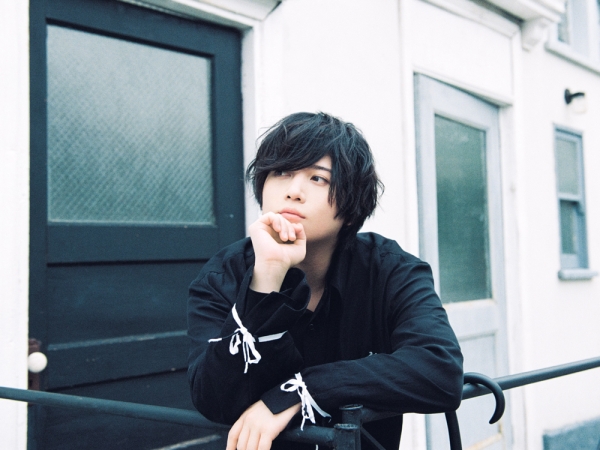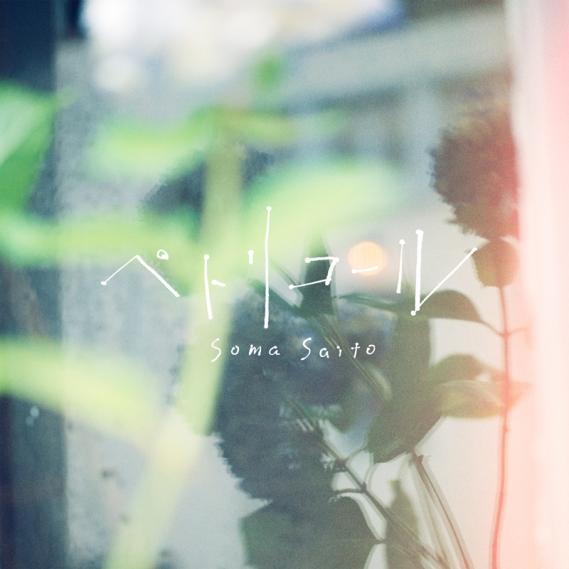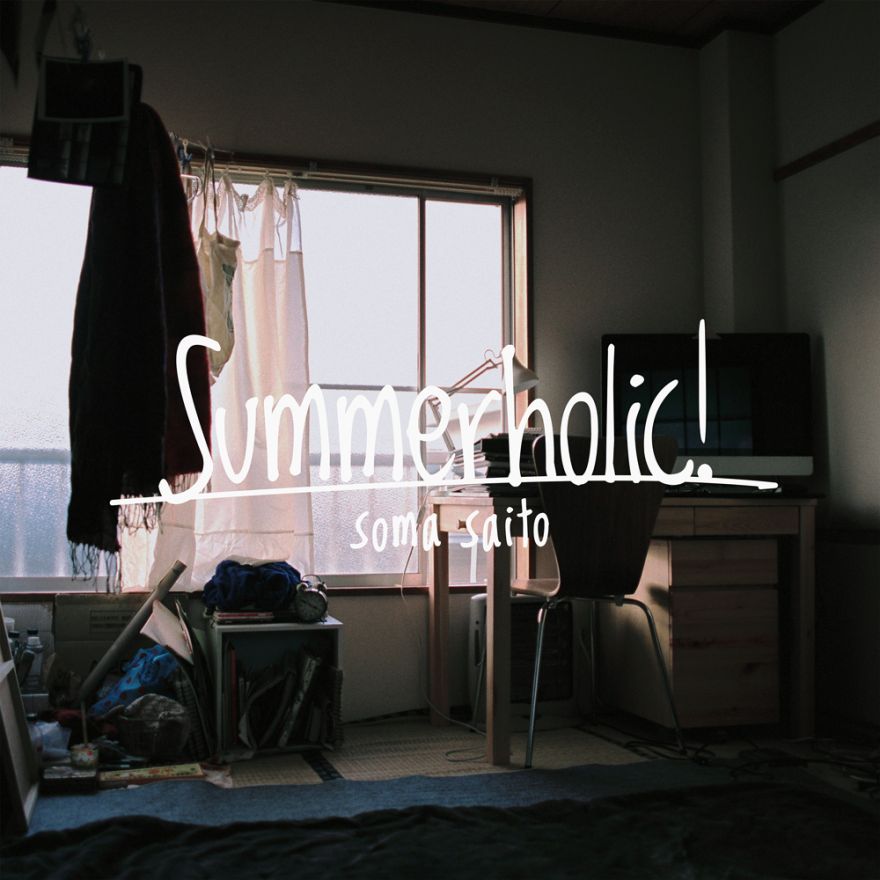
Published: 2020/9/4
Original URL: https://www.musicvoice.jp/interview/music-interview/161896/
“The way I approached music in middle school became the basis for who I am now”

—What was your formative experience with music like?
I liked singing ever since I was a child. I remember clearly what music my parents played in the car—my mother listened to artists like the Beatles and Matsutoya Yumi-san, and my father listened to Yazawa Eikichi-san, Hamada Shogo-san, and Inoue Yosui. Due to family circumstances we often traveled via car, so mainly listening to music in the car was part of my culture.
I remember when I was in elementary school, I made a cassette tape of my favourite songs and we would listen to it in the car. Back then, I listened to bands like PornoGraffiti and Spitz.
—What was your music experience like in middle school?
In middle school I made a friend who was knowledgeable about subculture. Up until then I’d mainly been listening to J-pop, but through that friend I learned about punk and underground music. I was shocked that such fascinating music could exist. I strongly remember that it was the first year of middle school when the desire to listen to music sprouted within me. I started listening to Western music, and it happened to be the rock ‘n’ roll revival era at the time. I got addicted to classic bands like the Libertines, the Strokes, and Bloc Party.
I recall a MiniDisc that my friend gave me. The first two tracks were by U2, and the rest of the lineup was the Rolling Stones, Emerson, Lake & Palmer, Marilyn Manson, and Kinniku Shojo-tai.
—That’s an interesting balance.
Yes. My music-listening was centred around two focal points: the research I did on my own, and the deep world that you’d expect to hear about from adults, courtesy of my friend. I didn’t listen to J-pop much during that time. As you’d expect from a middle schooler, I thought it was cool to know artists that no one else did. *laughs*
There was a local CD shop that I trusted to have good taste. I’d bike there, buy CDs based on their jackets, listen to them at home, and think, “Ohh! This is cool!” I think the way I approached music in middle school became the basis for who I am now.
—So your roots are in middle school. I can tell that you had a fine youth.
It wasn’t glittery or anything though; I was an irritable boy *laughs*. In middle school I was part of a punk-ish band and we played songs from artists like THE STALIN. The first song we copied as a band was T. Rex’s “Get It On.” I was on guitar and vocals, but no one could sing the chorus, so that got scrapped and we started writing our own songs instead. That friend and I had wanted to make original songs anyway. Our musical style at the time had an indie feel to it, like Arcade Fire or the Smashing Pumpkins.
—Rock music was your youth, then. Moving on, “in bloom” is a series of three songs, and each one is from a different genre. It gives a sense of breadth, but is there any central point that the songs share?
If I had to say, it’d be a good melody. I made sure to have catchy hooks that linger in your head, like the distinctive sax riff in “Petrichor.” As you said, these three songs don’t have a sense of unity. I call it the “in bloom” series, but it wouldn’t be classified as a trilogy.
The original plan was to release a single in June, with “Petrichor” as the title track. It was going to have a rain-themed trilogy of songs. But then it was decided that we’d be releasing them digitally, so I chose “Summerholic!” and “Palette” from the various songs I had completed, because I thought each of these three represented seasons. So “seasons” was a central theme too.
—”Petrichor’s” sax riff was indeed distinctive, but I also thought it was a bold idea to have the rain sound there from start to finish. Normally people only add it at important points.
*laughs* I thought that too. I experimented with different approaches at first, and I thought it’d be better to have it playing all throughout, considering the atmosphere of the song. The lyrics go, “I’m trapped in this season,” and I wanted the sound to give the impression of the song’s protagonist standing in the rain. I think this song’s melody has a pop feel, but the sax riff is a bit offkey, and there’s an Arto Lindsay-style noisy guitar. Music-wise, I’d say it’s a bold composition.
—It seemed like it’d fade out at the end, but instead it cut out.
I considered a fadeout, but I thought that might be too normal. I wondered what the listeners would think if the curtain suddenly fell. If the song abruptly ends in the middle of a comfy loop when they’re not ready, would that startle them? I wanted to have this song create that situation.
—It really caught me off guard. It’s also interesting how the lyrics can be interpreted in many ways.
I think “Petrichor” changes depending on whether you look at the protagonist’s feelings or the onlookers’ perspective. There’s no right answer. My songs are entertainment, so I want them to be enjoyed in many forms.
The emotions embedded in the “cheers” sound effect

—The second song in the series, “Summerholic!” is a straightforward rock number. What were you thinking about when you wrote this song?
I wanted to try something new. For example, if my second chapter began with “Summerholic!” then it’d be a direct way of saying “I’m going to do new things now.” But by having “Petrichor” as the first song, it communicates that I want to present songs like that, which have a twist.
So after putting out “Petrichor” first, I thought it’d actually be more of a twist if the next song was easy to understand *laughs*. With the COVID-19 pandemic, I thought there might be a lot of people feeling depressed at home, so I wanted to make an extremely bright summer tune. The first riff came about when I was playing around on my guitar, and then I added a chord progression I like and got really into it.
—How did you picture this song when you sung it?
I think it has a Western-style nuance to it, so I tried singing in a way that sounded English-like. Personally, I see it as a mix of the Cribs and the Libertines. The lyric that goes “Preparing for tomorrow, rules of maintaining health, and a lack of sleep” was inspired by Ojamajo Doremi.
—It contains a lot of different elements.
Yes. I intentionally chose words that would make me feel cheerful when I listened to them. I think this is the most honest song out of the ones I’ve written so far, since it only has one twist—that being that the protagonist refuses to go outside because it’s so sunny. This is what a luxurious summer day looks like in their eyes. *laughs*
—The lyric “Even the ghosts seem like they’re going to frolic” packs quite a punch.
Everyone is very concerned about the word “ghosts” there, but I’m using it in a relatively normal sense. I thought it would convey just how great the weather was, to the point where even ghosts would frolic. I like the visual design of the kanji for “ghost” (幽霊), and it was easy to rhyme with. It’s one of my favourite parts of the lyrics.
These lyrics came about when I was walking along and thought, “It sure is a fine summer day today.” It fit the melody too, so I decided to open the song with that. So rather than a twist, I see it as a courteous explanation of the summer sun. *laughs*
—Have you ever seen a ghost, Soma-san?
No, I have not. Apparently they don’t come to people who want to see them *laughs*. By the way, in the MV there’s a toast scene, but I’m the only one there. It raises the question of, “Who am I giving a toast with?” Could it be ghosts? I noticed that after the filming. *laughs*
—Was the sound of pouring beer recorded at the studio?
No, that’s a sample. I don’t think we originally planned to have it in there. When I listened to the completed song and heard that sound, I thought it was really good. The song was also arranged with the expectation that it’d be performed live. When we can have normal concerts again, I want to go “Cheers!” with everyone at the venue, even if it can’t be with beer. I’m really looking forward to the day when I can share a toast with everyone.
“I can now consider both voice acting and singing to be my ways of expressing myself”
—The third song “Palette” has a rock sound in a minor key.
I think this song has a similar atmosphere to my songs prior to “Petrichor.” If “Petrichor” was the rainy season and “Summerholic!” was summer, then I wanted to sing “Palette” as the end of summer until the beginning of fall.
Autumn is my favourite season, and I wanted to make this song match the sentimental feeling you get during that threshold between summer and fall. I also wanted it to use a straightforward distortion guitar. The intro was my hands moving habitually, but I like the classic, orthodox feeling of it.
—What did you focus on for this song?
I wanted to emphasize the bass. The bass is really strong, so please listen to it in the loudest volume that your environment will permit *laughs*. The guitar is also more of long low tones and choking, rather than high notes. I requested those for the arrangement because I wanted to convey something like a mass of raw emotion. By adding mid-tone vocals to that, my goal was roaring and emotional vocals. I wanted to express the sorrow of the end of summer through sound.
—What feelings went into the title “Palette”?
I previously wrote a song called “Deracine” that uses the word “palette.” I’ve always liked the theme of colours. “Palette” sings about a colourless, transparent world, giving the impression of a world that’s lost its colour. It gradually gets dyed in the colours of the protagonist’s emotions. When I imagined a world being coloured in one’s emotions, I thought a palette would be the direct metaphor. A painter’s palette is unique to them. The message is that the palette represents emotions that can only be coloured by your own perspective.
—It also conveys the themes of the “in bloom” series: “the changing of seasons” and “what comes after the end of the world.”
It shows how I view the future. This song has a sense of “ending” to it, but I think it connects to what comes after the “in bloom” series.
—Now then, it’s been three years since you debuted as a singer. How do you feel that your music has changed?
Up until around my second single, Hikari Tatsu Ame / Yoake wa Mada, I strongly felt that I had to sing properly. With my third single, Date, I started writing my own songs, and I think that’s when I began intentionally choosing singing styles that were rough (in a good way) and didn’t have to fully convey the message of the song.
In “Summerholic!”, the “Oh well, farewell holiday” part is sung in a character song-like way, but when I started my singing career, I think I kept a clear boundary between my voice acting work and my artist work. I recently came to think of both of them as my ways of expressing myself, so I don’t keep them separate anymore. These three years gave me the flexibility to choose what’s best for each song.
—Is there anything that’s crucial to your recordings?
Throat lozenges. I dissolve them in bottled water and keep it separate from my rehydrating drinks. This is something that happened naturally as I was doing my work. For example, if I’m sucking on a lozenge and suddenly I have to do a recording, I’d have to throw out the lozenge or put it somewhere. I didn’t like having to do that, so I started dissolving them to make them drinkable. I also try to wear clothes that aren’t too tight.
—Does your approach change between recordings and live concerts?
It does. At a recording, I’m creating something that didn’t exist before, so the way the mic picks up my voice differs from at a concert or when I’m voice acting. One of my current tasks is to find the method that produces the best recorded sound. I recently started studying equipment too, and I’ve been asking sound engineers about mics.
—It seems like you’re going through a lot of trial and error. Lastly, please give us a message for the fans.
I’m blessed to be able to release the three songs in the “in bloom” series during these troubled times. I’ve been singing about the end of the world all this time, and even I don’t know what the future beyond that will look like yet. I do have several plans in mind, though, so I want to look forward to delivering that future to you. I’ll do my best at my own pace, and I hope you’ll walk this path with me. Please continue to support Saito Soma!